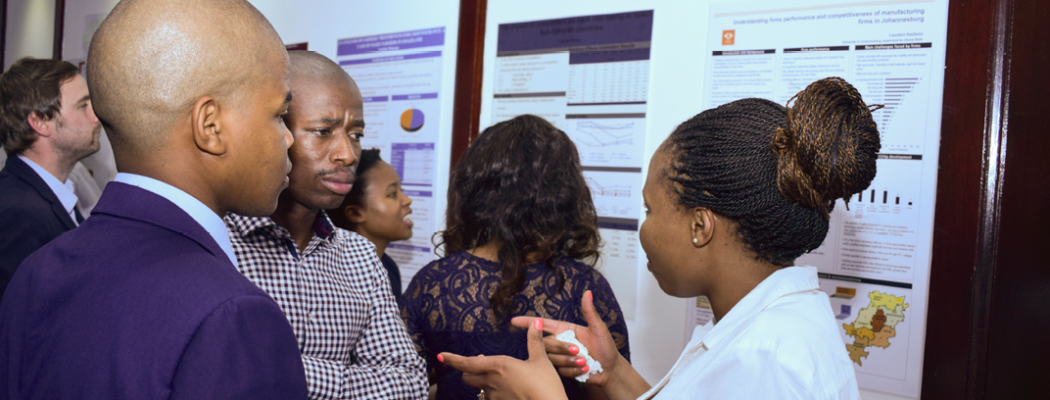Climate uncertainty and agricultural vulnerability in South Africa
Climate change poses significant challenges to economic development and welfare. Increased temperature and reduced rainfall are likely to have a negative impact in regions heavily dependent on rainfed agriculture. Wide variations in agricultural value added could exacerbate poverty and food insecurity in these areas. This brief outlines the key findings from a study which assessed the potential impacts of climate change on the South African economy, considering the climate impact channels of infrastructure, water availability and agriculture, for a range of potential climatic outcomes. The study uses the Systematic Analysis of Climate Risk (SACReD) framework applied to South Africa and presents the results from the South African economy-wide model. This study is an extension of The Economics of Adaptation to Future Climates in South Africa study, developed under the South African Long-Term Adaptation Scenarios Flagship Research Program (LTAS).
The impacts of climate change are highly variable across the nearly 400 potential climate futures for South Africa, with estimated real GDP declines of between -0.1% and -2.3% by 2050 (median: -1.5%).
Impacts vary across regions: in some, such as the Western Cape, a majority of climate outcomes point to worsening agricultural output, while in others, such as KwaZulu-Natal, a wide range of potential impacts - positive and negative - are possible.
Declines in rainfed yields cause a shift from dryland to irrigated agriculture. Also, there is a shift towards irrigated crops that yield higher profits, often accompanied by lower production of other crops.
Highly likely declines in key crops, such as summer and winter cereals and deciduous fruits, negatively affect the agricultural trade balance, making the country more dependent on foreign food supplies.
The decline in food production and increase in food prices negatively affect household welfare through income and price effects and raise the risk of food insecurity.
Climate change is highly likely to negatively affect the economy
Climate change is highly likely to negatively affect the South African economy, primarily because of its large negative impacts on agricultural crop yields. Studies have shown that field crops in South Africa are highly likely to be sensitive to even marginal changes in temperature, as crops are already close to tolerance levels. Temperature increases of between 1.5°C and 2°C are projected across climate models. The impact on precipitation is more varied than temperature, with most models indicating a decrease in precipitation but some also predicting an increase and several scenarios highlighting extreme changes. The varied precipitation outcomes drive the range of potential impacts on the level of real GDP. These are found to be between -0.1% and -2.3% (median: -1.5%) by 2050.
Agriculture directly affected due to large dependence on rainfed farming
With 80% of crop agriculture dependent on rainfed farming systems, the sector is highly vulnerable to the impacts of climate change. Across most scenarios modelled, climate change negatively affects dryland crop production, raising the price of crops, particularly that of sugarcane, for which there is a large, linked processing sector. Within the model, a shift from dryland to irrigated agriculture takes place where this is an option. The increase in irrigated crop production is, however, insufficient to offset the decrease in dryland crop production. Shifting to irrigated agricultural crops also results in a shift of other resources, often at the expense of other activities in the economy.
Key crop regions negatively affected
The impacts of climate change vary across water management areas (WMA), with key crop producers often negatively affected. Key crop producers affected by climate change include the Western Cape (WMA 16, 17, 18 and 19), which is a primary producer of high-value crops such as deciduous fruits; the Vaal region (WMA 8, 9 and 10), which is the main producer of summer cereals; and KwaZulu-Natal (WMA 6, 7 and 11), which accounts for almost 90% of sugarcane production. Whilst impacts in the Western Cape and Vaal region are highly likely to be negative, a larger range of uncertainty is displayed in KwaZulu-Natal. The wide range of potential outcomes are largely linked to the uncertainty in sugarcane outcomes, and generally do not suggest a broad improvement in growing conditions for all crops in the region. In most WMAs, more than 75% of climate futures suggest a decline in agricultural value added.
A key finding from the analysis is the shift of resources into agriculture, particularly high value crops. In adapting to climate change, a strategy must be developed to ensure that crops produced align with national policy goals to ensure food security and not necessarily food sovereignty. Easing of conditions for imports is necessary to ensure that shortages can be met with foreign products. This includes imports of sugar, which is currently a protected industry.
While the results show an endogenous adaptation to irrigated agriculture, these shifts are insufficient to offset the declines in rainfed production. A shift to irrigated agriculture alone is, therefore, not an effective strategy to cope with the impacts of climate change in South Africa. It also puts agriculture into conflict with other water-dependent sectors, including both municipalities and industry, which have higher returns.
Climate change negatively affects household welfare both nationally and sub-nationally, with certain households more affected than others, depending on the region, and the level and source of their income. Given South Africa’s significant level of household food insecurity, particularly in rural areas, strategies must be developed to help isolate vulnerable households from the negative impacts of climate change. These will involve not only physical interventions to improve agricultural production but also means for alternative income-generating activities that are less climate-dependent.
Household welfare and food security
Despite South Africa being a food-secure nation, there are high levels of food insecurity at the household level in rural areas. Climate change is likely to worsen food insecurity not only at the household level, due to rising prices, but also at the national level, as dependence on imported food is expected to increase as local production declines. Exports are expected to decline as key agricultural exporters, such as the Western Cape, are negatively affected. Total household welfare is lower under all climate scenarios, as incomes decrease and prices increase. Variation in consumption is largest for food (which includes agricultural crops), with a decline in household food consumption and hence increased insecurity, highly likely. Households in agricultural-dependent regions, such as the Western Cape, Vaal region and KwaZulu-Natal, are likely to be more affected as are households in the first income quartile.





